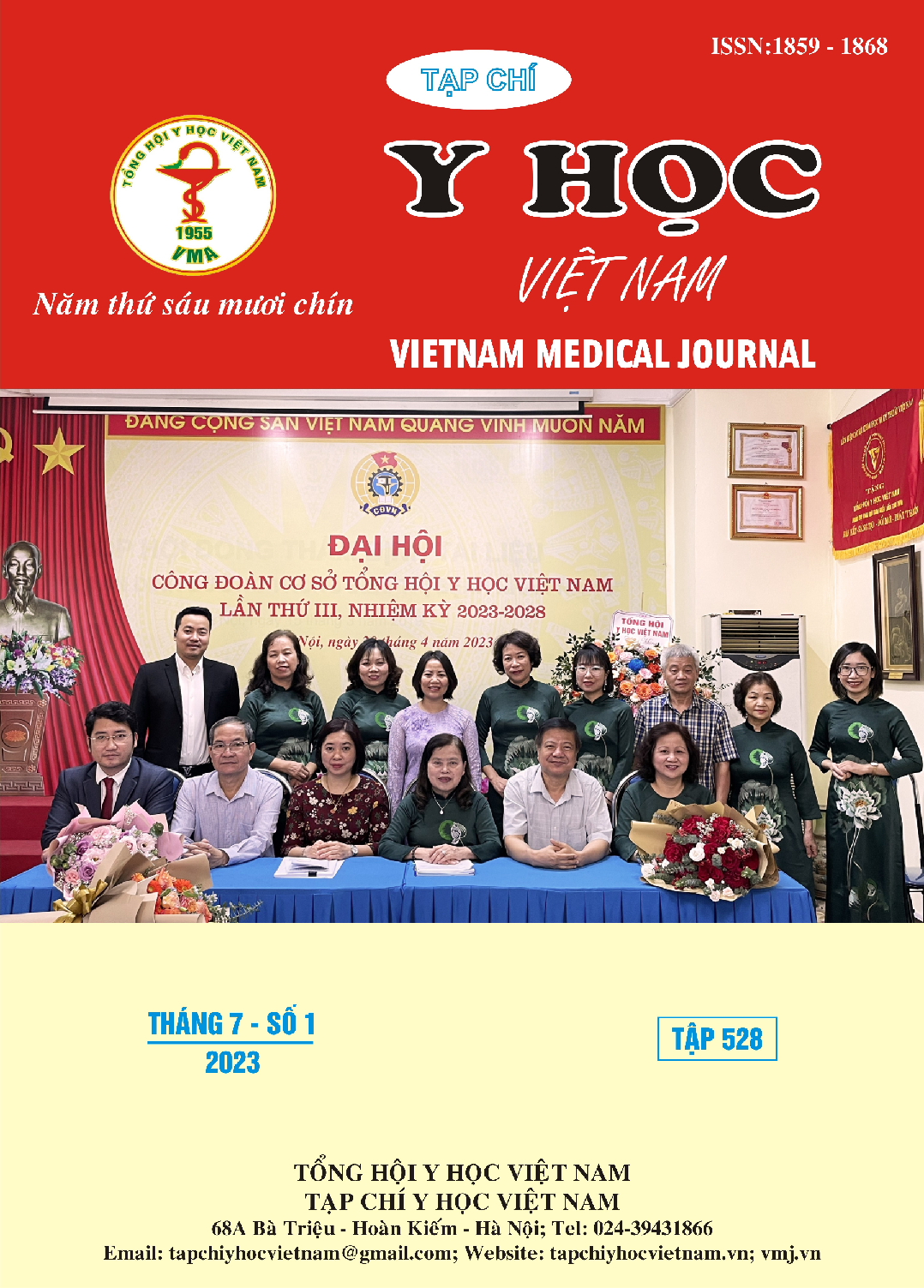LONG-TERM OUTCOME OF 10 YEARS WITH II-IVB STAGE NASOPHARYNGEAL CARCINOMA TREATED WITH CHEMORADIATION AT K HOSPITAL
Main Article Content
Abstract
Up to now, there are very few long-term follow-up studies at K hospital that exceed 5 years and have a survival time of 10 years, the majority of chemoradiotherapy studies on nasopharyngeal cancer have a follow-up time of less than 5 years. A long-term follow-up study is needed to assess survival rates as well as collect subsequent data such as toxicity, survival, and quality of life. Objective: Evaluate the 10-year survival rate of concurrent chemoradiotherapy with/without adjuvant chemotherapy in patients with stage II-IVB nasopharyngeal cancer at K Hospital. Method: Collecting retrospective data from medical records and prospective follow-up on 282 nasopharyngeal cancer patients receiving chemotherapy and radiation concurrently at K Hospital from January 1, 2010 to December 31, 2013. Kết quả: The 5-year overall survival, disease-free survival and distant metastasis-free survival rates were: 58.6%, 67.3% and 73.0% respectively; The rate of overall survival, disease-free survival and 10-year distant metastasis-free survival were: 40.3%, 56% and 67% respectively.
Article Details
Keywords
nasopharyngeal carcinoma, chemoradiation, stage II-IVB, long-term outcome
References
2. Salehiniya H, Mohammadian M, Mohammadian-Hafshejani A, Mahdavifar N. Nasopharyngeal cancer in the world: epidemiology, incidence, mortality and risk factors. World cancer research journal. 2018;5(1)
3. Pfister DG, Spencer S, Adelstein D, et al. Head and Neck Cancers, Version 2.2020, NCCN Clinical Practice Guidelines in Oncology. Journal of the National Comprehensive Cancer Network. Jul 2020;18(7):873-898. doi:10.6004/jnccn.2020.0031
4. Bossi P, Chan A, Licitra L, et al. Nasopharyngeal carcinoma: ESMO-EURACAN Clinical Practice Guidelines for diagnosis, treatment and follow-up. 2020;
5. Lee VH, Lam KO, Lee AW. Standard of Care for Nasopharyngeal Carcinoma (2018–2020). Nasopharyngeal Carcinoma. Elsevier; 2019:205-238.
6. Chen YP, Ismaila N, Chua MLK, et al. Chemotherapy in Combination With Radiotherapy for Definitive-Intent Treatment of Stage II-IVA Nasopharyngeal Carcinoma: CSCO and ASCO Guideline. Journal of Clinical Oncology. Mar 1 2021;39(7):840-859. doi:10.1200/JCO.20.03237
7. Au K, Ngan RK, Ng AW, et al. Treatment outcomes of nasopharyngeal carcinoma in modern era after intensity modulated radiotherapy (IMRT) in Hong Kong: a report of 3328 patients (HKNPCSG 1301 study). Oral Oncology. 2018;77:16-21.
8. McDowell L, Corry J, Ringash J, Rischin D. Quality of life, toxicity and unmet needs in nasopharyngeal cancer survivors. Frontiers in Oncology. 2020;10:930.
9. Li M, Zhang B, Chen Q, et al. Concurrent chemoradiotherapy with additional chemotherapy for nasopharyngeal carcinoma: A pooled analysis of propensity score‐matching studies. Head and Neck. 2021;43(6):1912-1927.
10. Blanchard P, Lee AW, Carmel A, et al. Meta-analysis of chemotherapy in nasopharynx carcinoma (MAC-NPC): An update on 26 trials and 7080 patients. Clinical and translational radiation oncology. 2022;32:59-68.


